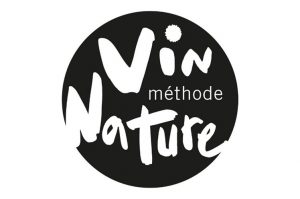As you’re enjoying the rustic air of Wine Country, you might want to know how well the grapes were raised and harvested and then what was done to the juice in the industrial processes of crushing, fermenting, aging and bottling. Vignerons and wine makers are as concerned about sanitary and healthful practices as anyone – in fact, more so than many of us – and they have responded in a number of ways. But many of the terms in use in the world of wine today can be very confusing.
Making wine used to be rather simple, at least in concept: Plant vines; Nurture grapes; Harvest and process grapes; Repeat. Now there are considerations that are intended to make the wine better that are either advanced or trendy, depending on your perspective.
- Organic wines – We are all used to seeing organic fruits and vegetables in the supermarket. Grapes are fruit so there’s no reason why some of them might be raised organically. In practice, what does that mean? In a sense, it’s a return to the simple principles of olden times. Specifically, organic grapes are raised without a lot of chemicals such as fertilizers, pesticides, fungicides and herbicides. Now, we’re not fond of drinking a glass of bug-killer, but then we’re not too happy about knowing that little critters have been gnawing on the same grapes that went into out glasses. At least in theory, crops should be certified as being organic but we’re not sure that all organic winemakers go through this step.
 Some biodynamic wine practices. Photo courtesy of Bibendum Wine.
Some biodynamic wine practices. Photo courtesy of Bibendum Wine.
- Biodynamic wines – Makers of these wines follow the same organic practices but then go quite a bit further. Evidently an Austrian fellow in the beginning of the previous century espoused some theories about agriculture that proponents call advanced and detractors think of as just plain whacky. Among these are following astrological observations and burying cow’s horns filled with manure in the vineyards. We’d be thoroughly in the detractor category except that some of the biodynamic wines we’ve tried have been pretty good, so maybe there’s something there. (Just to confuse matters, French winemakers who raise grapes organically, but not biodynamically refer to their wines as “bio”.)
 The logo for French “natural” wines. Courtesy of decanter.com.
The logo for French “natural” wines. Courtesy of decanter.com.
- Natural wines – These wines place less emphasis on how the grapes are raised but rather focus on what happens to the juice once it is crushed out of those grapes. The winemakers don’t add yeast to force fermentation but rely on the natural yeasts that settle on the grapes in the vineyards. Some makers of natural wines add a little bit of sulfites to preserve the wines, but much less than the producers of most commercial wines. Others add no sulfites at all. In the United States, there are no formal rules for natural wines but the French government has recently set a designation for vin méthode nature the prescribes methods and practices.
We at Power Tasting applaud any methods being applied to make better wine. We have found that these practices have vastly improved winemaking in areas that used to be known for “rustic” (i.e., low quality) products. But we are not fans of cultish ideas that are more about lifestyle philosophy than winemaking.